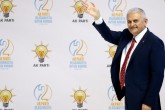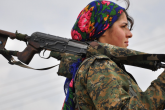In the last few years, Russia’s foreign and security policies have been one of the most enigmatic dimensions of the international system. The words that described the Russian government after a long campaign in Chechenia in the first years of the 2000s mostly came to the agenda of the international community from its economic recovery. Mostly due to rising oil prices, Russia enjoyed high growth and it was one of the rising economies and re-emerging super powers. It was part of the BRICS group of nations of Brazil, Russia, Indonesia, China and South Africa. The optimism of economic development was also reflected in politics. The invasion of parts of Georgia was neglected by the U.S. and Western powers when U.S. President Barack Obama’s administration launched its reset policy with the Russian government. Especially during the presidency of Dmitry Medvedev, the summits and high-level meetings between the U.S. and Russia became frequent. As a result of this new policy, U.S. administrations even changed its missile defense system plans and abandoned its plan to have bases for this system in Poland and the Czech Republic, generating huge disappointment and crises of confidence. The optimism was so high about Russia that some analysts during these years wrote that Russian needed to be added to the Western foreign policy and security architecture. However, the optimism about a reset and Russia’s new foreign policy started to change in recent years. The Russian government started to follow policies that resulted in significant problems and challenges for the Western world and international community in different regions. With the rapid changes in the Middle East following the beginning of the Arab Spring, Russia’s foreign policy started to demonstrate signs of a return to its default setting. People’s movements in different countries in the region were perceived as a threat to Russia. Firstly, they were considered a threat because of the sudden eruption of protests in authoritarian countries. However, later with the conflict in Syria, Russia’s reaction to the developments also took a more territorial nature as well. From the first days of the crisis in Syria, Moscow expressed support for Bashar Assad’s regime and supported it diplomatically in international organizations. It started to veto resolutions on Syria at the U.N. Security Council. More significantly, it continued to provide arms and ammunition to the Syrian regime. While the conflict in the country was worsening, the Russian government also started to get involved in the political turmoil in Ukraine.
Despite the protests from Western powers of Russia’s role in Syria, its policies in the country were not considered a direct challenge. However, it shocked many in the West when Russia’s Ukrainian operation started. The annexation of Crimea, the increasing clashes in Ukraine and the shooting down of a Malaysian passenger plane over Ukraine, reportedly by Russian-supported forces in Ukraine, increased the extent of this threat. Before this, many countries around the world were already irked by the violation of their airspaces and territorial waters by the Russian navy and air force. After the Ukrainian conflict, this perception was further aggravated. Statements from members of the Russian government and their threats to different countries around the world were another shock to the international community.
These statements and actions demonstrate the rise of a Russia that aims to challenge world politics, international norms and create the perception of a force that wants to play a role in shaping the international systems. However, the method that it picked to reach this objective, instead of making Russia a major force to contribute to changing the system, is marginalizing it in the international system. Its next step in its region is becoming increasingly unpredictable, which makes it difficult to coordinate. Its military involvement and use of its veto power generates the image of a spoiler rather than a game changer in significant crises. This perception and image of Russia are being increasingly solidified by its actions. This is generating a major enigma for the future of world politics.
[Daily Sabah, May 23, 2016]
In this article
- Foreign Policy
- Opinion
- 2000
- 2016
- Annexation of Crimea by the Russian Federation | 2014 Crimean Crisis
- Arab Spring
- Assad Regime
- Bashar Al Assad
- BRICS
- China
- Crimea
- Czech Republic
- Daily Sabah
- Indonesia
- Malaysia
- Middle East
- Poland
- Russia
- Superpower
- Syria
- Syrian Civil War
- Syrian Conflict
- Syrian Crisis
- Syrian Regime
- U.N.
- Ukraine
- United Nations (UN)
- United Nations Security Council (UNSC)
- United States (US)
- US President
- Western World



